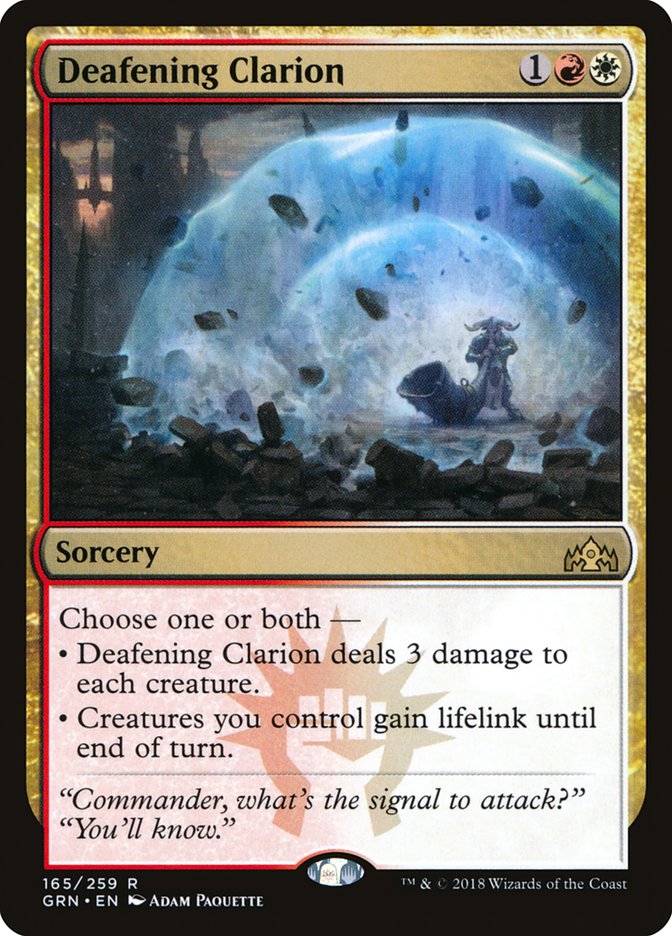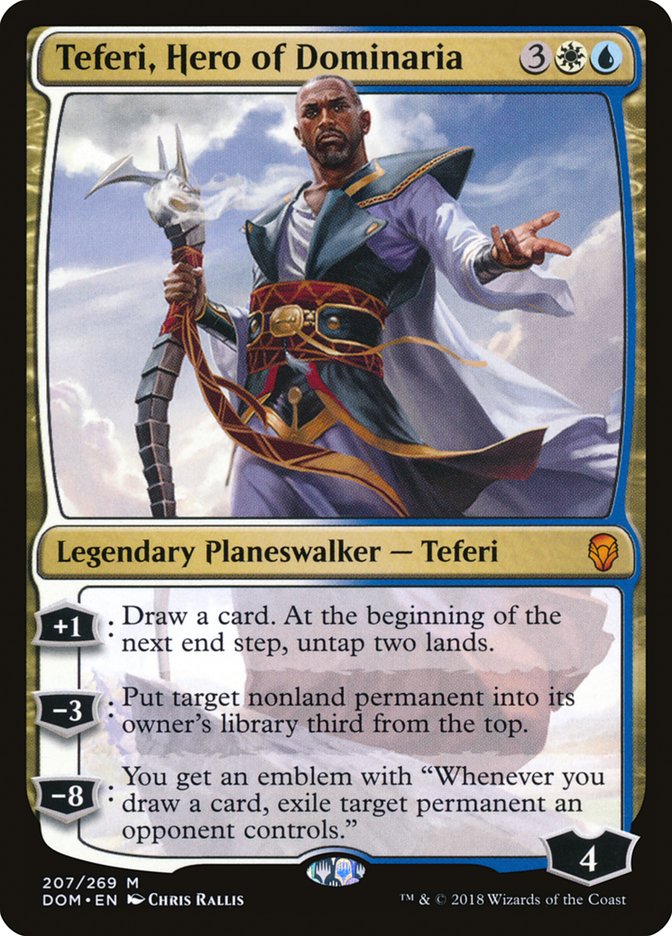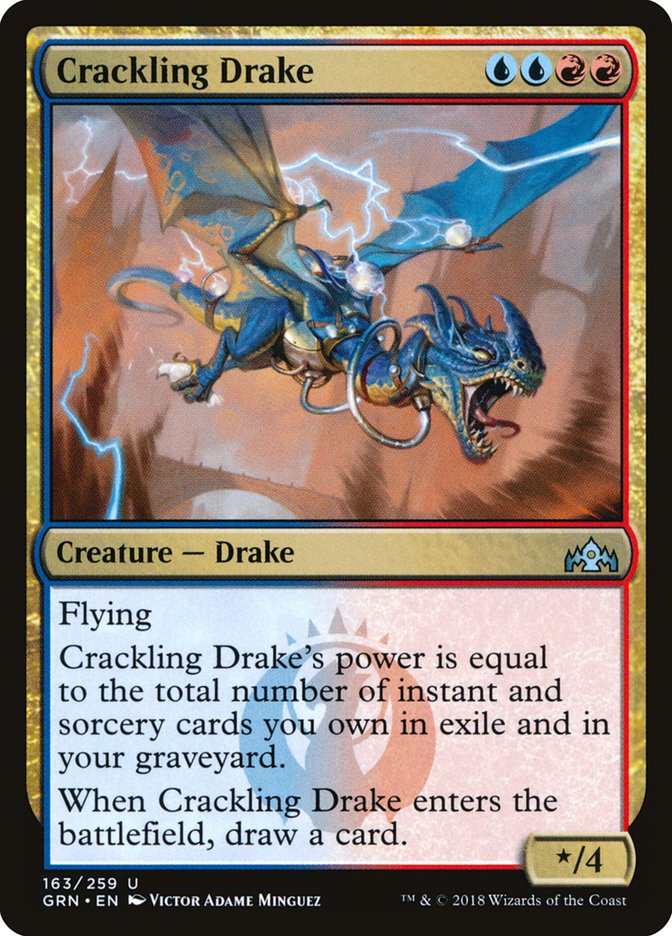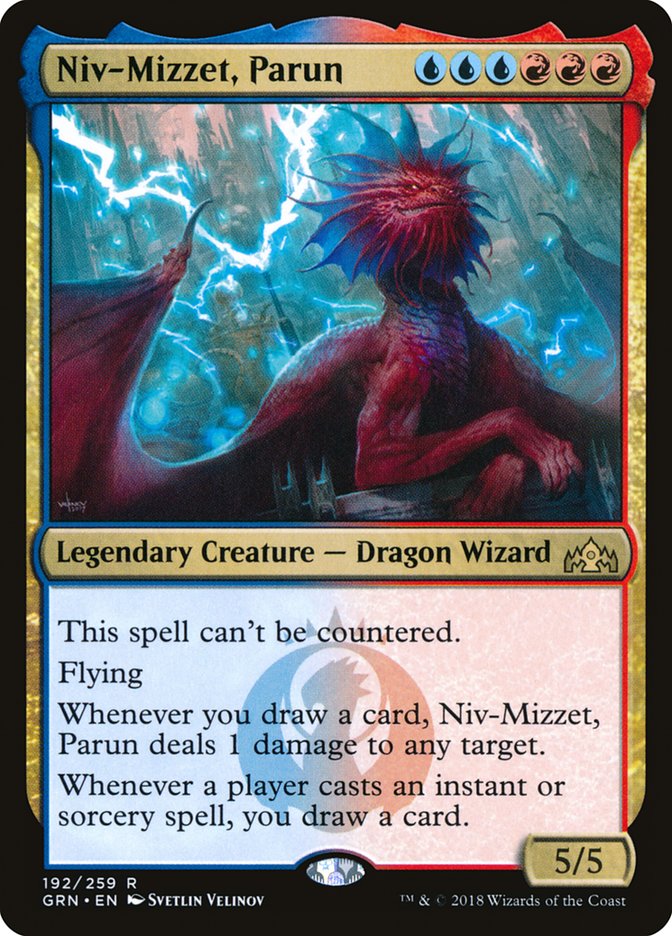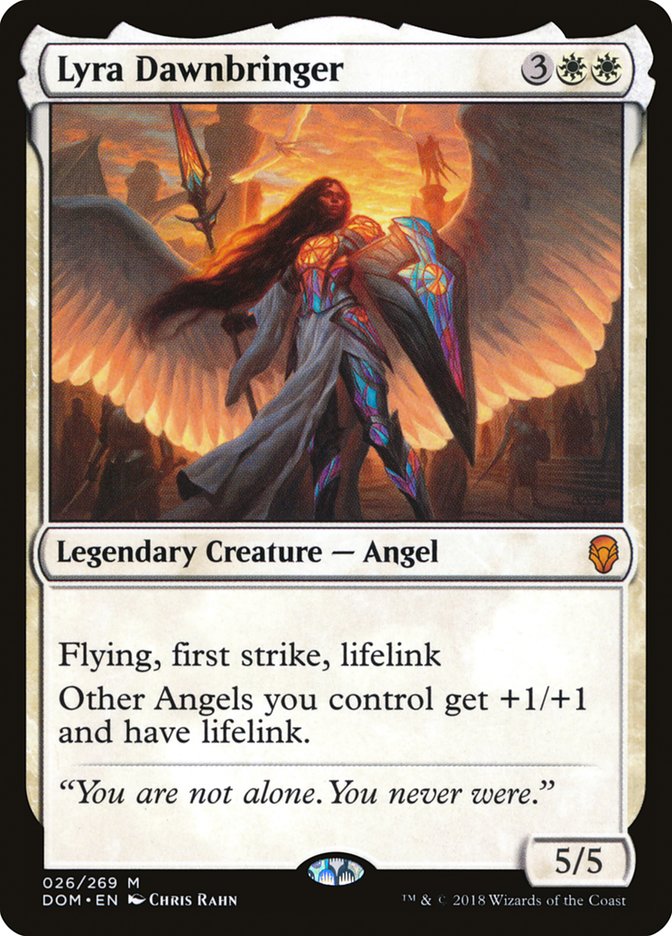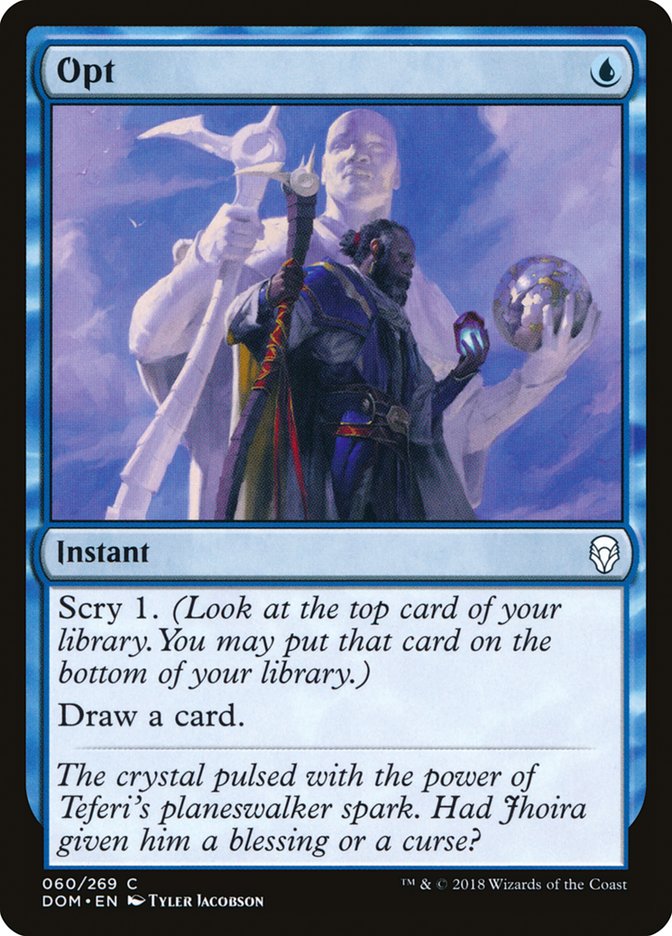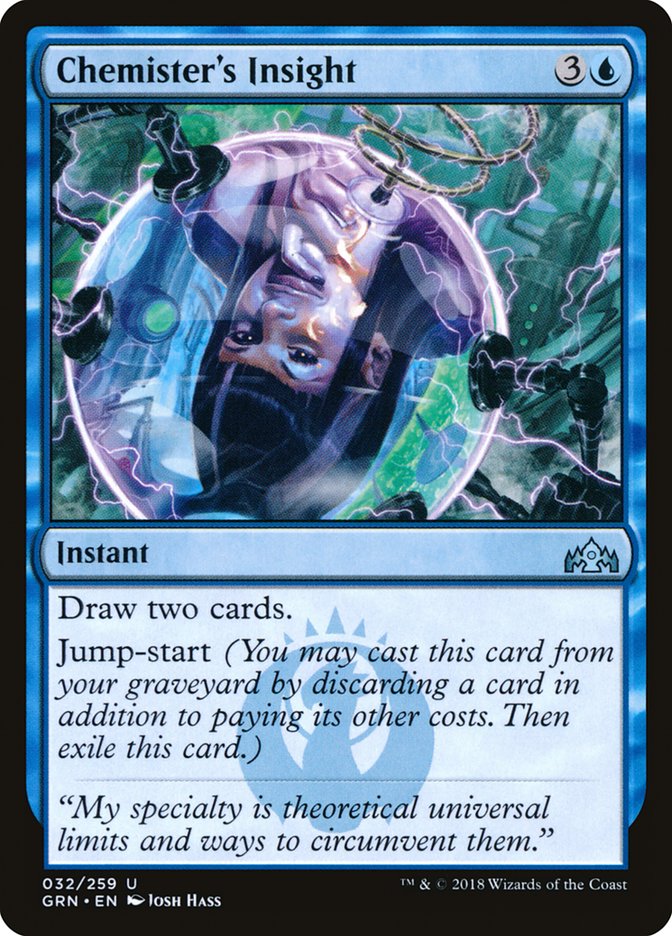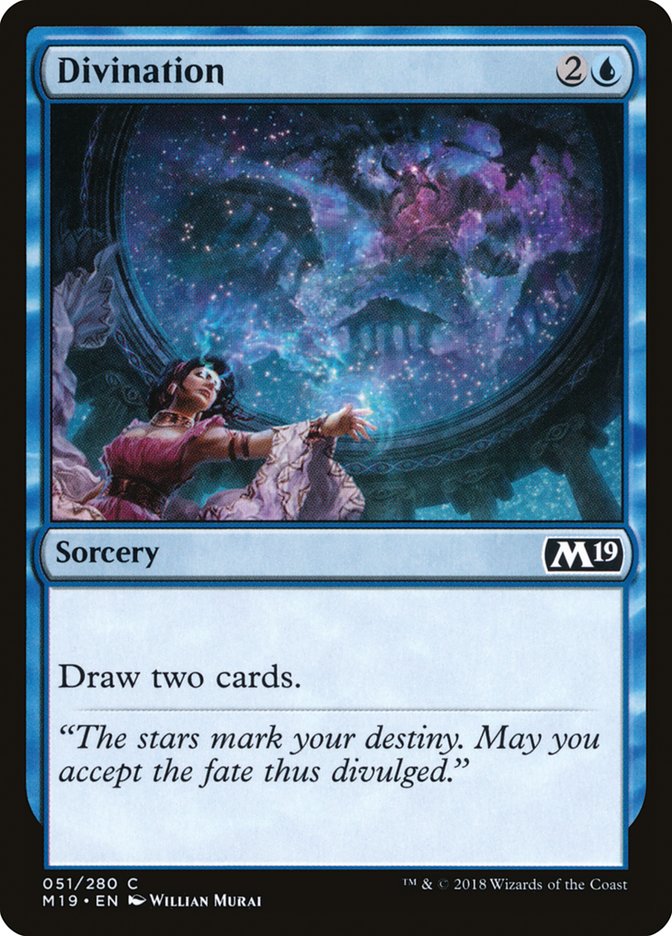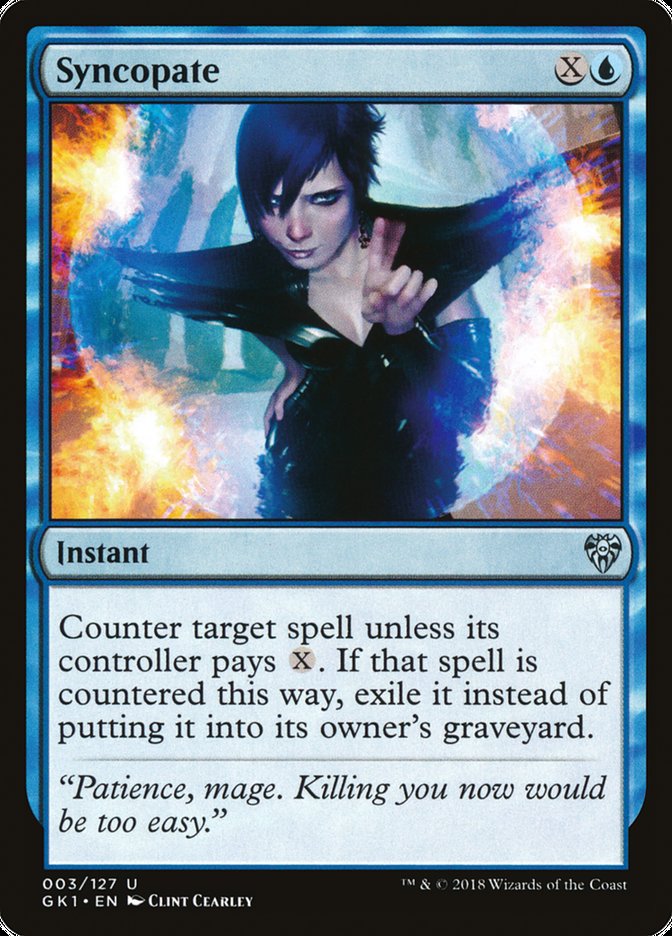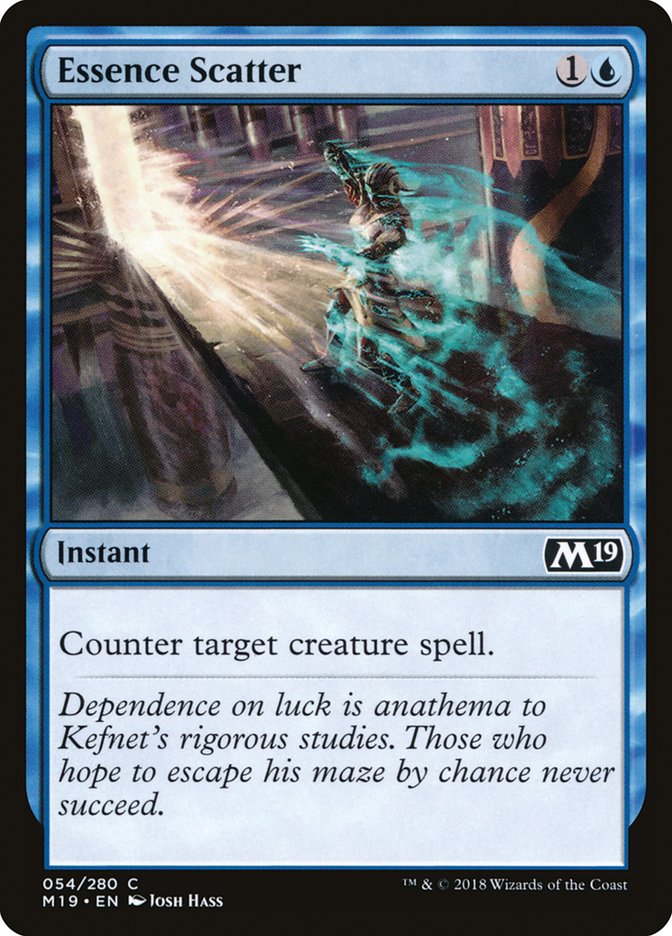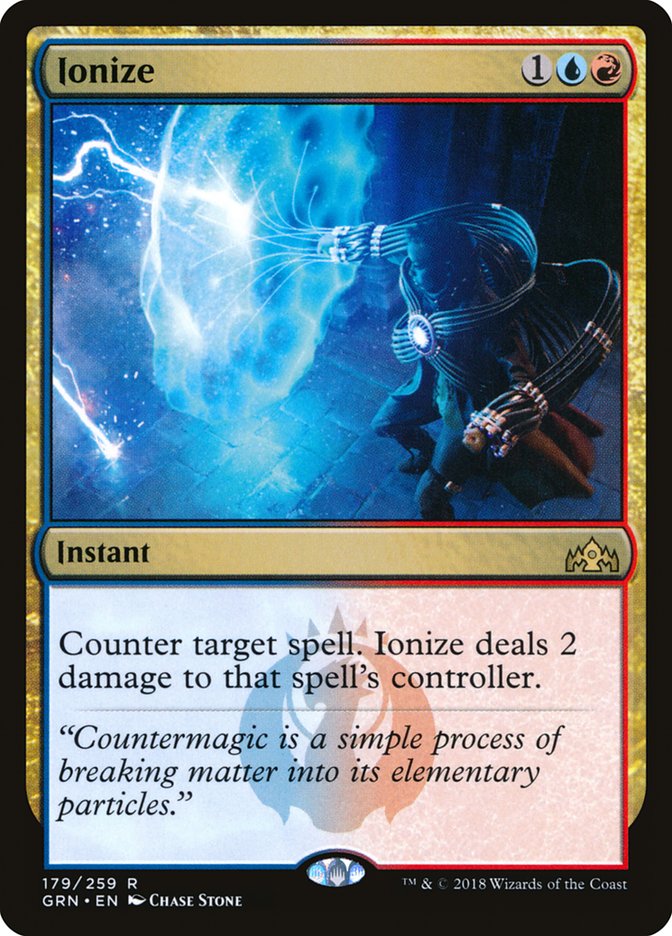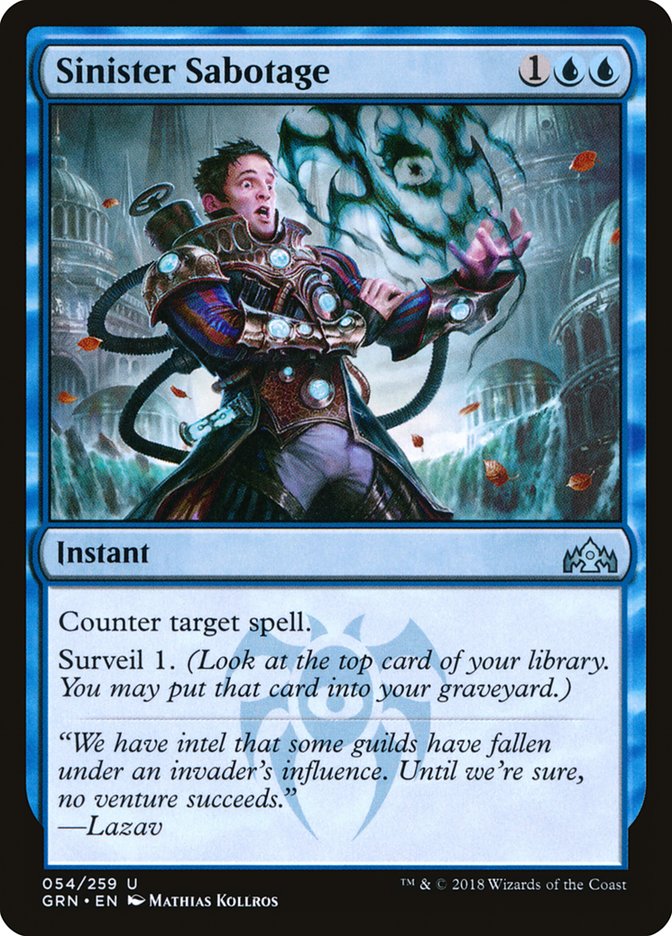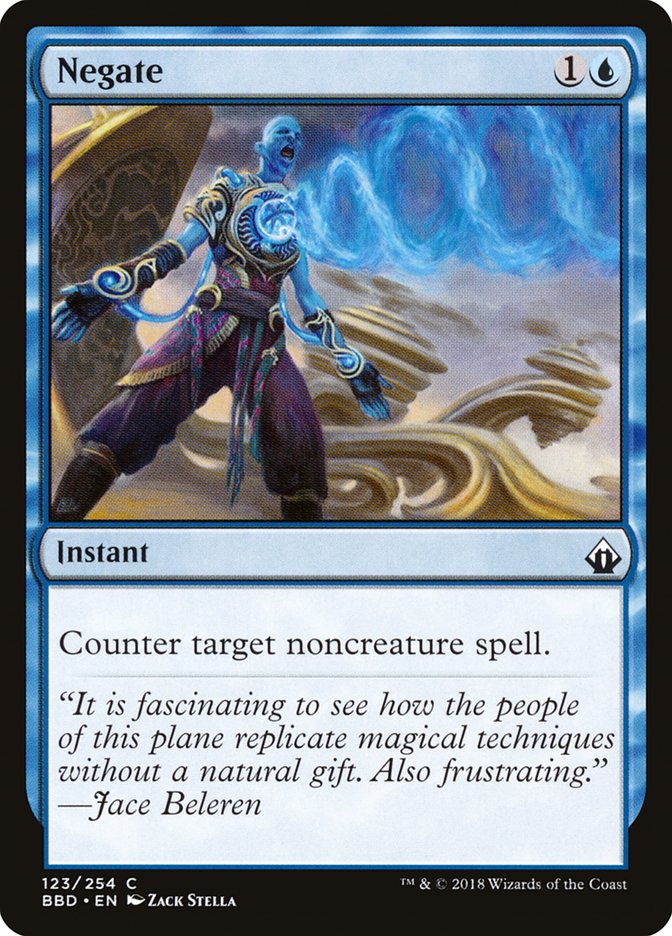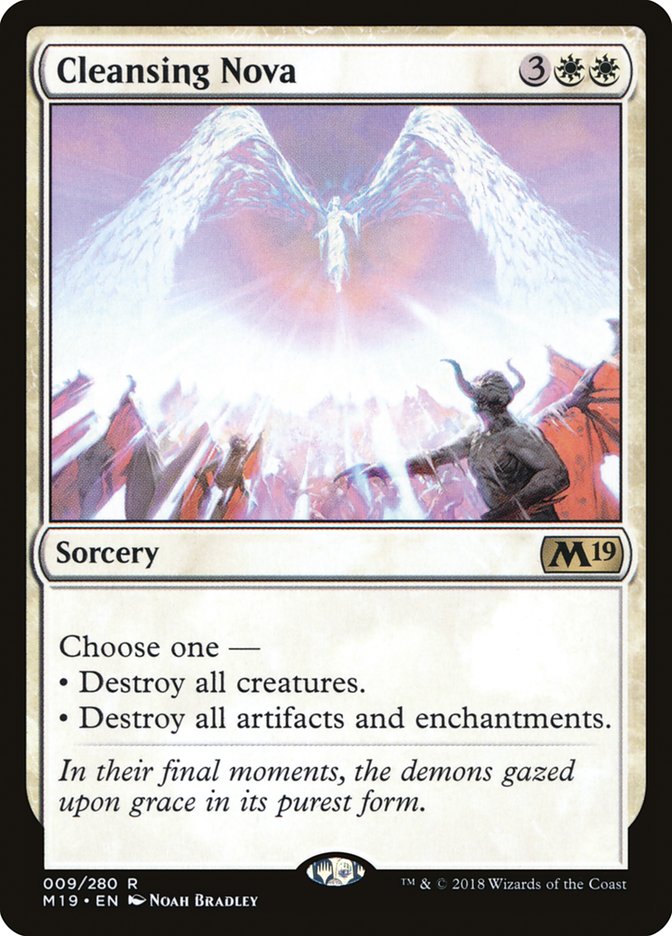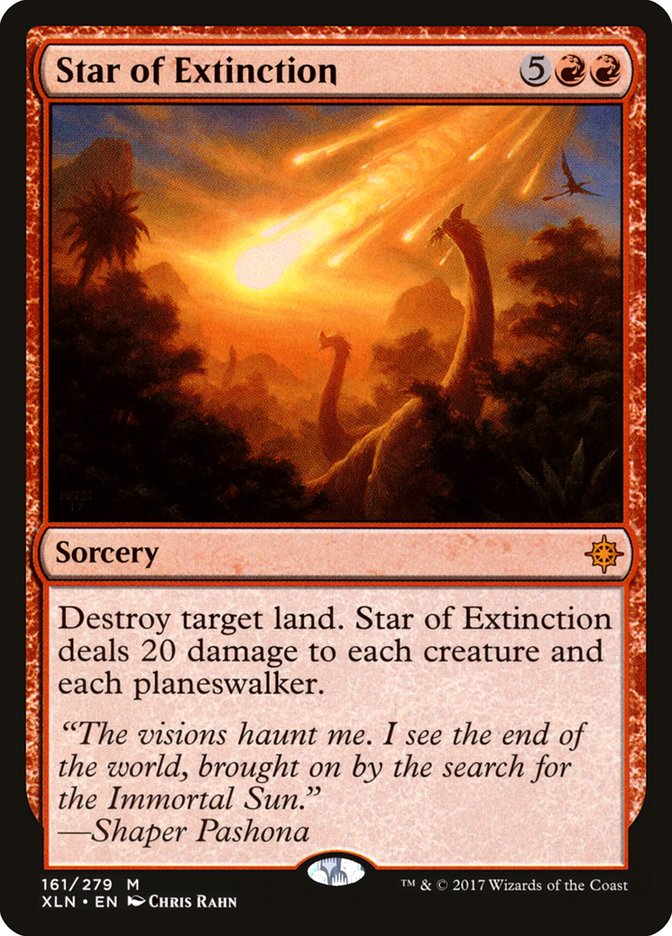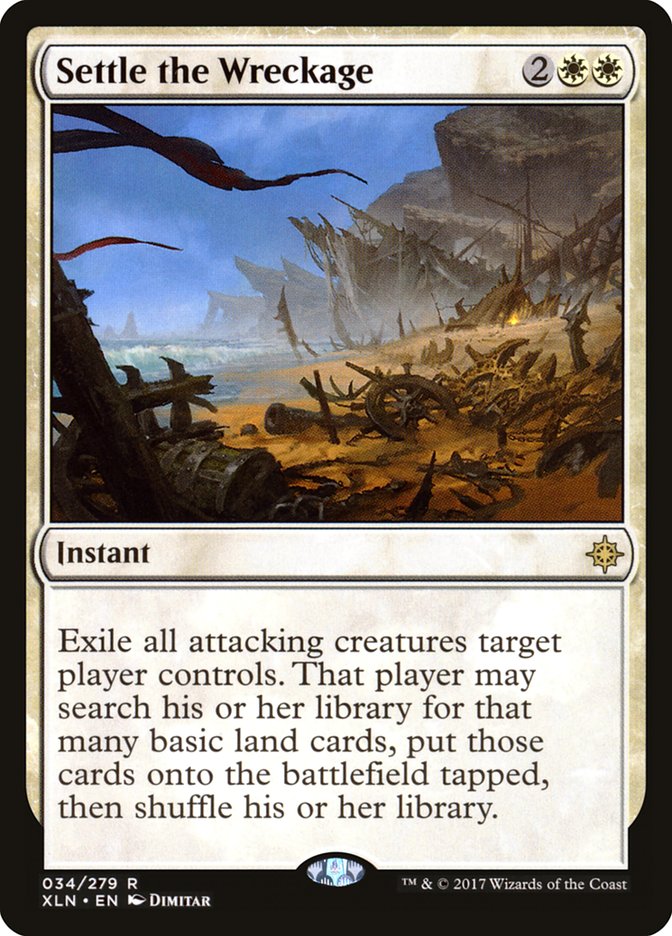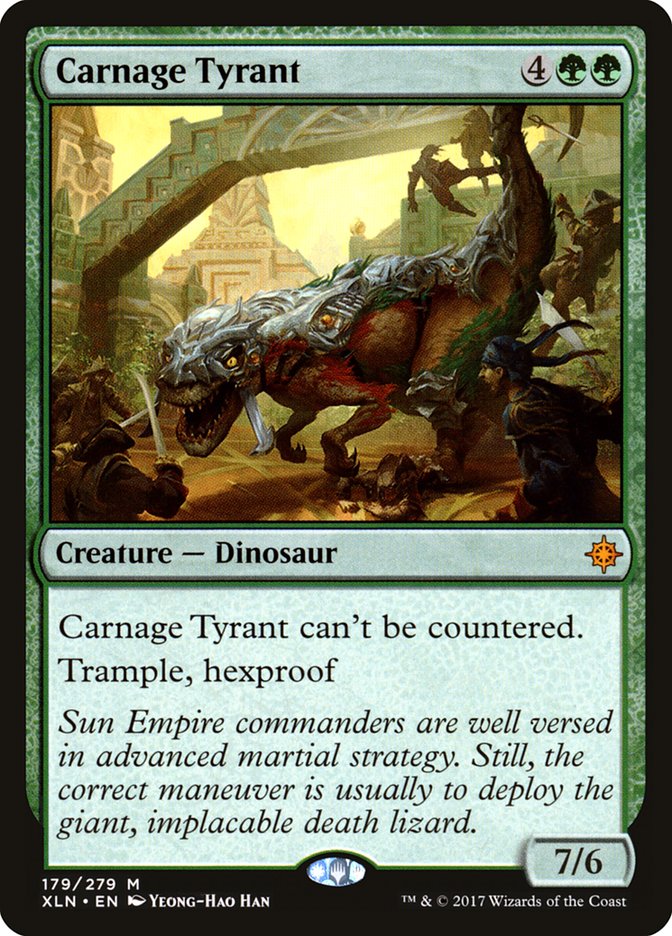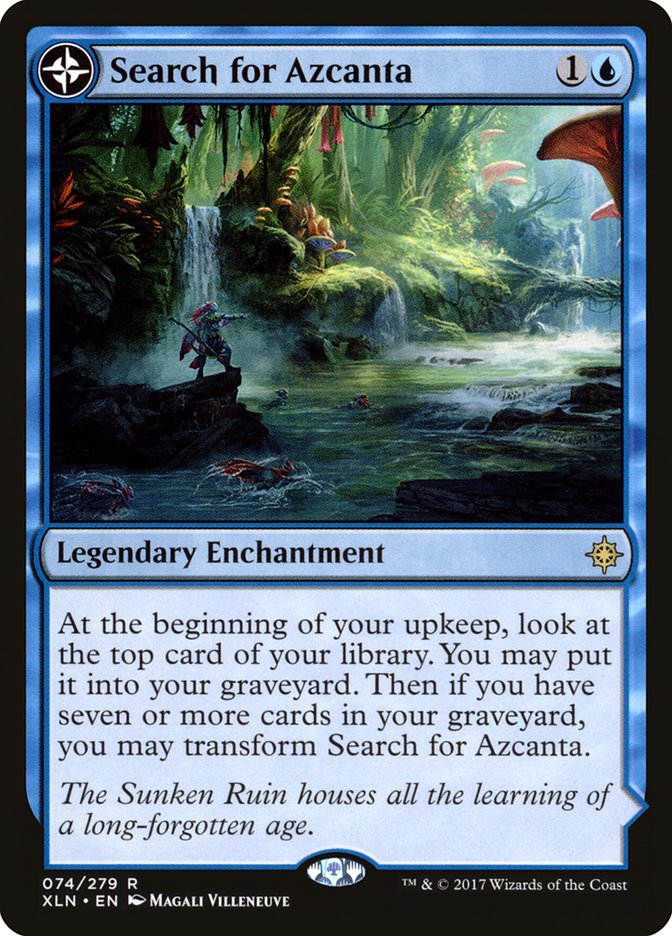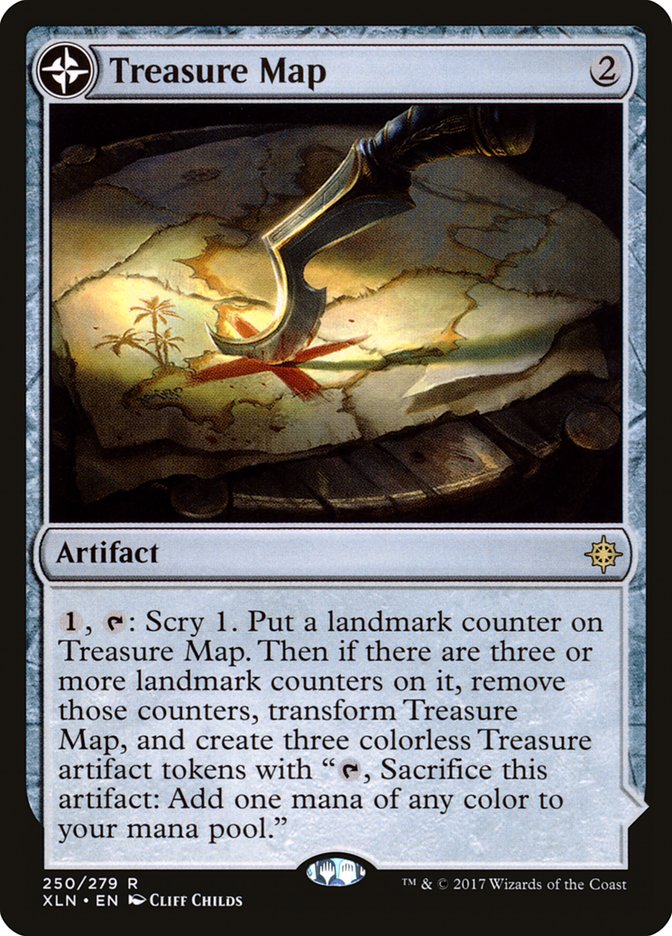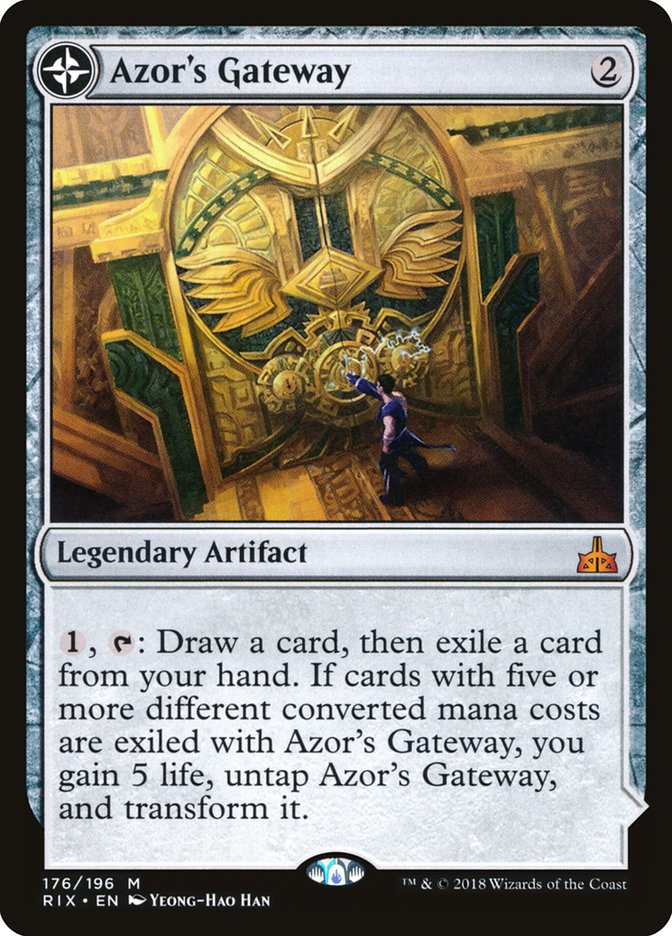The Season Two Invitational has come and gone and with it comes a
month-long break and some time to prepare for next year. The first event of
2019 is the Team (Non-Unified) Modern Open, but I know that my sights are
going to be on tuning the Standard deck I’ve been enjoying most: Jeskai
Control!
Jeskai Control is the format’s only top tier three-color deck, since it
boasts a healthy combination of strong spells and reasonable mana when
compared to the other decks in the format. Grixis Control sees some play
but isn’t the default three-color deck choice in the format, because, well,
the white cards are just so good!
The two cards you see above are the biggest reasons to play Glacial
Fortress, Sacred Foundry, and Clifftop Retreat alongside your Sulfur Falls
and Steam Vents. Deafening Clarion gives Jeskai a great way to catch up in
the early turns against the aggressive starts the other decks in the format
have. Being able to clean up a couple Merfolk Branchwalkers or a few
one-drops out of Boros Aggro gives the deck the ability to turn the corner
with threats like Crackling Drake or take the pressure off to resolve a
Chemister’s Insight on turn 4.
Teferi is, well..Teferi.
The Hero of Dominaria lit the Magic world on fire in 2018 and made control
mages everywhere happy that they didn’t have to consider Dovin Baan for
their Standard control decks. Teferi effectively costing three mana on a
majority of the turns he’s played makes him incredibly efficient at pulling
you very far ahead very quickly in both cards and mana. If you’re fortunate
enough to untap with Teferi, it quickly becomes very difficult to lose.
Jeskai Control has a resoundingly solid toolbox of spells to utilize, given
the size of the current Standard format as far as number of sets are
concerned. Let’s break down each group of cards that makes up the spells.
Win Conditions
While more reactive than Izzet Drakes/Phoenix decks, Jeskai Control takes a
page out of Izzet’s creature base by usually employing some number of
Niv-Mizzet, Paruns and Crackling Drakes to win the game. The biggest
addition, as mentioned above, is Teferi, which, when played together, gives
Jeskai the ability to play a more midrange style game when it’s called for.
A curve of Crackling Drake into Teferi into Niv-Mizzet can frequently be
far too much to overcome for some of the other decks in the format. Lyra
Dawnbringer serves as the spiritual successor to Baneslayer Angel as a
control finisher and is frequently utilized out of the sideboard against
decks that are ill-equipped to handle her.
Draw Spells
This department is the one that arguably suffers the most from the smaller
card pool the deck has access to at the moment, but the available tools are
good enough and slot reasonably well into the deck’s curve.
-
Opt does a nice job of letting you play your lands tapped in the
early game to avoid taking too much damage while you set up for a
turn 3 Deafening Clarion. -
Chemister’s Insight, the spiritual successor to Glimmer of Genius,
is a solid recurrable draw spell that lets you cycle away dead
spells or lands later in the game to help you churn even further
through your deck. -
Divination sees occasional play as a one or two-of but has
generally seen little play in more recent lists, as the card sits
on the curve in the same spot as – you guessed it – Deafening
Clarion.
Removal Spells
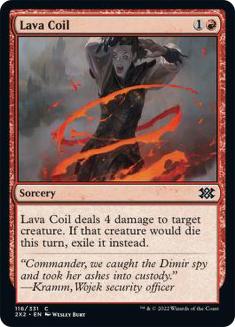
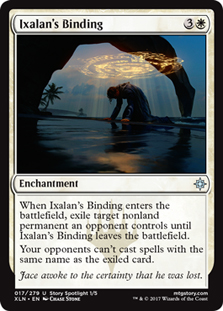
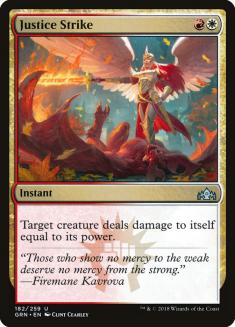

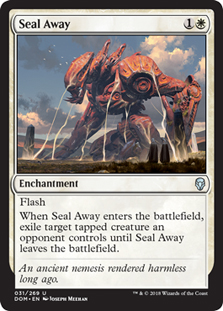
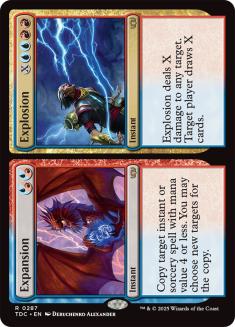

Due to the deck’s reliance on Deafening Clarion to clean up the battlefield
as the game progresses to turn 4 and beyond, Jeskai Control doesn’t
overutilize the above removal spells to help it make its way to the
midgame, but it does employ some mixture of single target removal to help
deal with some of the bigger threats in the format.
-
Lava Coil does a superb job of dealing with both Enigma Drake and
Crackling Drake, as well as being one of the few clean answers the
deck has to a Wildgrowth Walker that has grown out of Deafening
Clarion range. -
Ixalan’s Binding is one of the best answers to Niv-Mizzet, since it
doesn’t trigger Niv-Mizzet’s draw ability and prevents further
Niv-Mizzets from joining the fray on your opponent’s side, leaving
yours to quickly take over. -
Justice Strike does a really good Terminate impression against most
of the creatures in the format. The card usually doesn’t see play
in huge numbers since enough creatures exist that have higher
toughness than power, like Trostani Discordant, Shalai, Voice of
Plenty, and Wildgrowth Walker. -
Shock’s utility in Jeskai is slightly different than the Mono-Red
Aggro decks, as it’s usually being pointed at threats instead of
your opponent’s life total. On top of being able to take care of
Llanowar Elves before they generate too much of a mana advantage,
it helps cleans up Vivien Reids and Ral, Izzet Viceroys that will
frequently enter the battlefield and use their minus ability to
kill your creatures. -
Seal Away, while conditional, is a very clean answer to anything
attacking you. It most notably serves as one of your only answers
to Adanto Vanguard, a card that’s very difficult to destroy. -
Expansion//Explosion could’ve been listed in the draw spell
section, but I put it in this section since it’s very good with
your other removal spells late in the game. Being able to copy a
Lava Coil to deal with two creatures on turn 4 is nice, and the
card’s power level scales greatly into the lategame, where you can
fuel back up on cards while taking out one of your opponent’s
creatures. If the game goes even later than that, it can
turn into an enormous Banefire-esque burn spell that you can send
right at your opponent to finish them off.
Counterspells
The bread and butter of most control decks, the counter suite currently
available in Standard has a lot to offer.
-
Syncopate is the best counterspell for preventing your opponent
from curving out on you. Being able to counter your opponent’s turn
2 play (when you go first) allows you to go toe to toe with your
opponent up the curve until you reach turn 5 and cast Teferi on a
nearly empty battlefield. While at its worst on the draw and in
longer, drawn out games like the mirror match, Syncopate gives the
deck a flexible spell to help break up your opponent’s curve
starting on turn 2. -
Essence Scatter does a great job at answering most of the threats
in Standard and usually allows you to trade up on mana in the
process. Against Izzet Drakes, getting to counter an Enigma Drake
or Crackling Drake lets you pull very far ahead on tempo. It also,
like Syncopate, lets you keep Golgari Midrange from curving out
with Merfolk Branchwalkers and Jadelight Rangers. This is
significant, as the deck relies on those creatures to filter the
top of their deck and help them hit their fifth and sixth land
drops so they can start dropping giant hexproof Dinosaurs and
Planeswalkers onto the battlefield. Essence Scatter is notably not
great against some of the most potent threats in the format, like
Niv-Mizzet and Carnage Tyrant, but it helps stop just about
everything in between. -
Ionize competes with Sinister Sabotage for the three-drop
counterspell of choice. One of Jeskai Control’s biggest weaknesses
is its manabase, and Ionize is easier to cast on turn 3 over
Sinister Sabotage, with the additional upside of helping you chip
in at your opponent’s life total. This can be significant, as it
can sometimes shave a turn off the clock for your Crackling Drake
to cross the finish line later in the game. -
Sinister Sabotage’s advantage over Ionize comes primarily from the
surveil 1 stapled onto the card. Control players from the Return to Ravnica/Theros era fondly remember Dissolve as
one of the better three mana counters to be printed in Standard,
and Sinister Sabotage is arguably better than that, as it creates
other micro-synergies like fueling Search for Azcanta flips faster. -
Negate helps fight a lot of Standard’s lategame. Golgari Midrange
leans on cards like The Eldest Reborn, Find//Finality, and Vivien
Reid to generate card advantage in the lategame, and Negate answers
those very cleanly. The mirror match has targets like Teferia and
Search for Azcanta, and Izzet Drakes spends the early turns
spinning its wheels by casting cantrips to hit their land drops and
find their Dive Downs. By countering those spells, you can hinder
Izzet Drakes’ development and clear the way to resolve your own
Niv-Mizzet before they do. -
Disdainful Stroke is usually relegated to the sideboard, but a copy
in the maindeck or two will likely always find a target in this
format. Even Boros Aggro plays cards that get snagged, like
Venerated Loxodon and Conclave Tribunal.
Sweepers
The sweepers available in Standard for Jeskai to play are, like the removal
spells, powerful but conditional. Each one does a great job at hitting
threats and all come at different mana costs, so it usually comes down to
metagame considerations for deciding which mixture you want to play in your
maindeck and sideboard.
-
Deafening Clarion, as I’ve mentioned before, is one of the biggest
reasons to play Jeskai Control in Standard. Being cheap lets you
catch up quickly against the aggressive decks in the format, and
the lifelink mode sometimes lets you virtually end games with an
enormous Crackling Drake. -
Cleansing Nova trades away the cheaper mana cost in exchange for
being able to destroy everything without toughness mattering.
Additionally, like Deafening Clarion, Cleansing Nova has a “hidden
mode” that destroys all artifacts and enchantments on the
battlefield, which can be useful against decks that heavily rely on
white enchantments as their primary forms of removal, like Boros
Aggro. -
Star of Extinction seeing play in the format is casually the
biggest flavor win in Standard, since this large, hexproof monster
is the biggest reason it sees play:
-
Star is the ultimate sweeper in Standard. The Ixalan mythic
quickly found a home in
Standard due to its ability to deal with planeswalkers, Dinosaurs, and even
utility lands! -
Settle the Wreckage has conceded slots in control decks to
Deafening Clarion but still sees play in some numbers. The card has
been in print for over a year now, and it’s a card that loses a lot
of power when opponents are actively playing around it. Sometimes,
not having this sweeper in your deck at all can give you value as
people will still play around it. This card is very strong against
Boros Aggro, and, like Star of Extinction and Cleansing Nova, helps
deal with Carnage Tyrant.
Utility Cards
Since the beginning of the format, we’ve seen a variety of different builds
of Jeskai Control have success. Eli Kassis won GP New Jersey with a version
utilizing Azor’s Gateway to cast enormous Expansion//Explosions for lethal
damage. Adrian Sullivan won GP Milwaukee with a version utilizing Treasure
Map to help power out faster Niv-Mizzets and protect them with Dive Down.
The deck has 1-2 slots available for these flexible cards that help provide
incremental advantage in the early game and tons of it in the lategame.
-
Search for Azcanta is, to many, one of the best spells granted to
control mages in the last year. The card offers card filtering to
help hit your land drops and draw the spells you need early in the
game and turns into an unbeatable card advantage engine if you
survive the game long enough to transform it into Azcanta, the
Sunken Ruin. While slow and not fantastic in multiples, the card is
incredibly useful in Jeskai Control at all points in the game. -
Treasure Map provides advantage on a slightly different axis than
Search for Azcanta. While the Treasure Map side also helps filter
your draws, the Treasure Cove side provides flexibility in either
raw cards or additional mana thanks to the Treasure tokens it
creates once it transforms. The ability to ramp into high powered
spells a turn or two ahead of schedule can help close the door on a
game quickly against unprepared opponents. -
Azor’s Gateway is another card selection engine that transforms
into an enormous amount of mana. This card was more popular in the
earliest builds of Jeskai Control in this Standard format,
eventually giving way to Niv-Mizzet being the primary gameplan.
As you can see, there’s a slew of options available when it comes to
putting together a solid maindeck and sideboard. Moving forward, I think
I’d like to test this list:
Creatures (5)
Planeswalkers (4)
Lands (26)
Spells (25)

One of my biggest problems with this deck have stemmed from missing land
drops, so I’ve opted to go with Sinister Sabotage over Ionize, as well as
adding the 26th land. Most lists play 25 with Sabotage, but I wanted to add
the extra Island to help with hitting double blue mana on turn 3. The
sideboard Nexus of Fate is a solid addition for the mirror match and
potentially Golgari as it attempts to win the game on an axis that your
opponents will be not be expecting.
Gerard Fabiano’s list from the Invitational
intrigues me as it attempts to go “all in” on the Nexus plan, but I find it
hard right now to divorce myself from Niv-Mizzet, as well as make myself
slightly softer in Niv-Mizzet mirrors due to how poorly the card lines up
against it.
Sideboard Guide
VS Golgari Midrange:
Out:


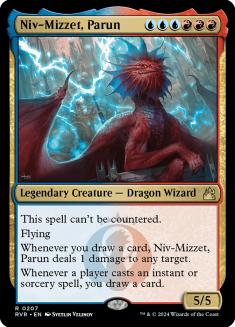




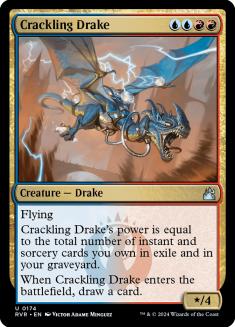

In:
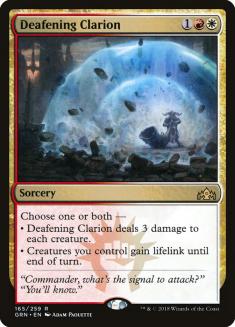
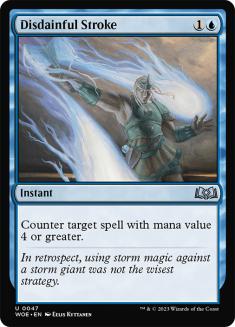

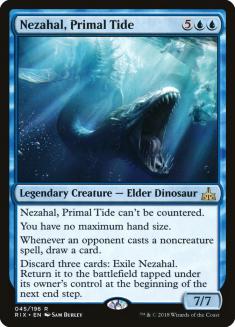
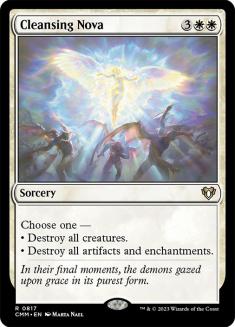

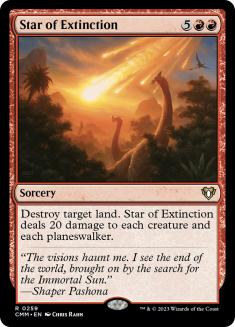


It’s possible that since you’re going so counter heavy that it is correct
to cut a Crackling Drake for the Nexus of Fate.
VS Jeskai Control
Out:







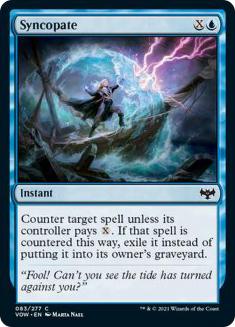

In:
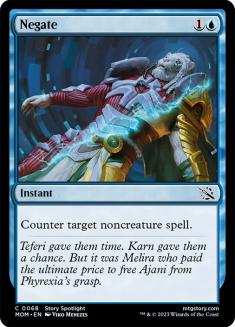
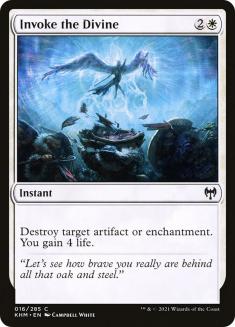





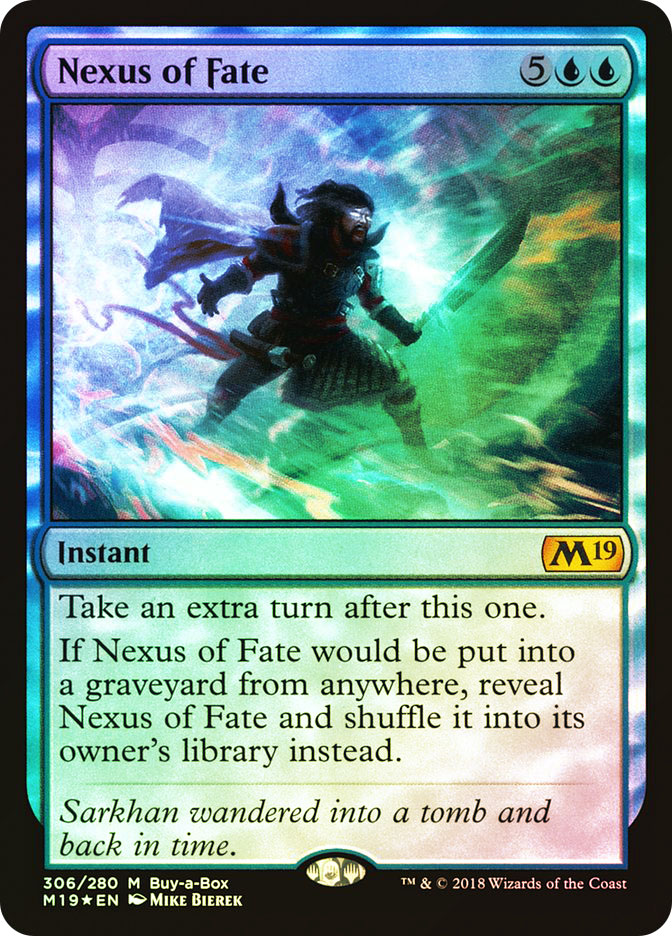

VS Boros Aggro
Out:
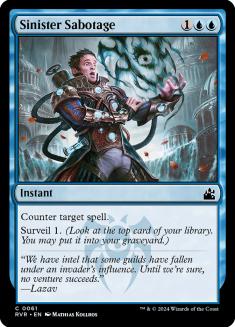




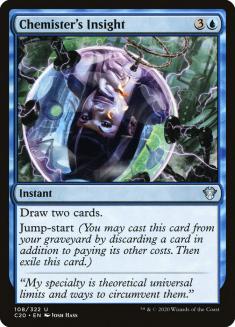



In:





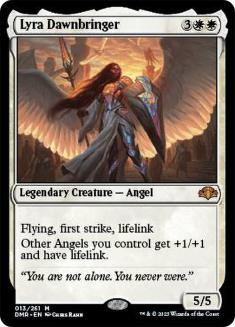



VS Izzet Drakes
Out:









In:









Keep in mind that this deck can be built in a variety of different ways,
and the search for the optimal build is still out there. As I mentioned,
Gerard Fabiano’s Jeskai Nexus version has piqued my interest the most, and
I’d be lying if I said I wasn’t going to give it a spin to see how it
plays. Find a spell suite that works best for your playstyle and for the
ever evolving metagame, and let Teferi do the rest.


